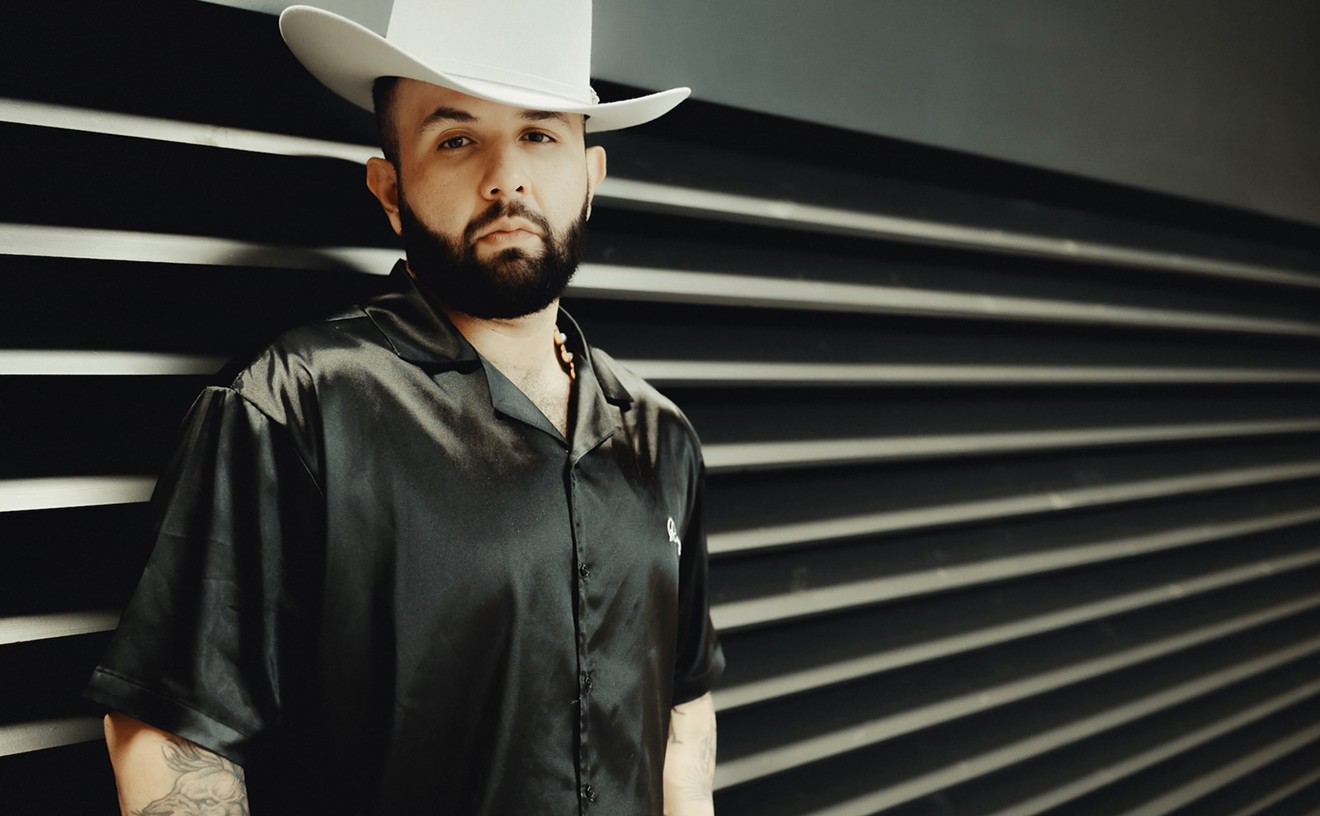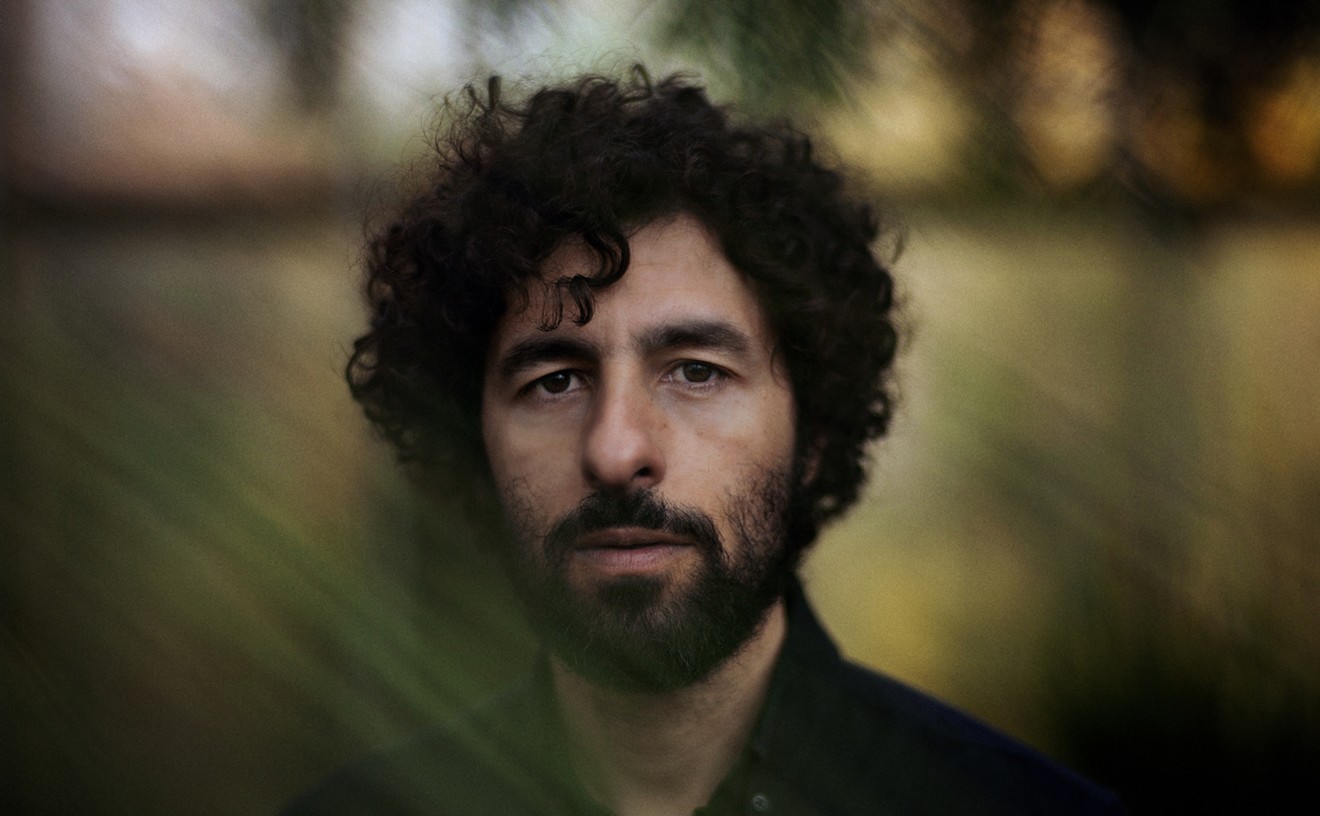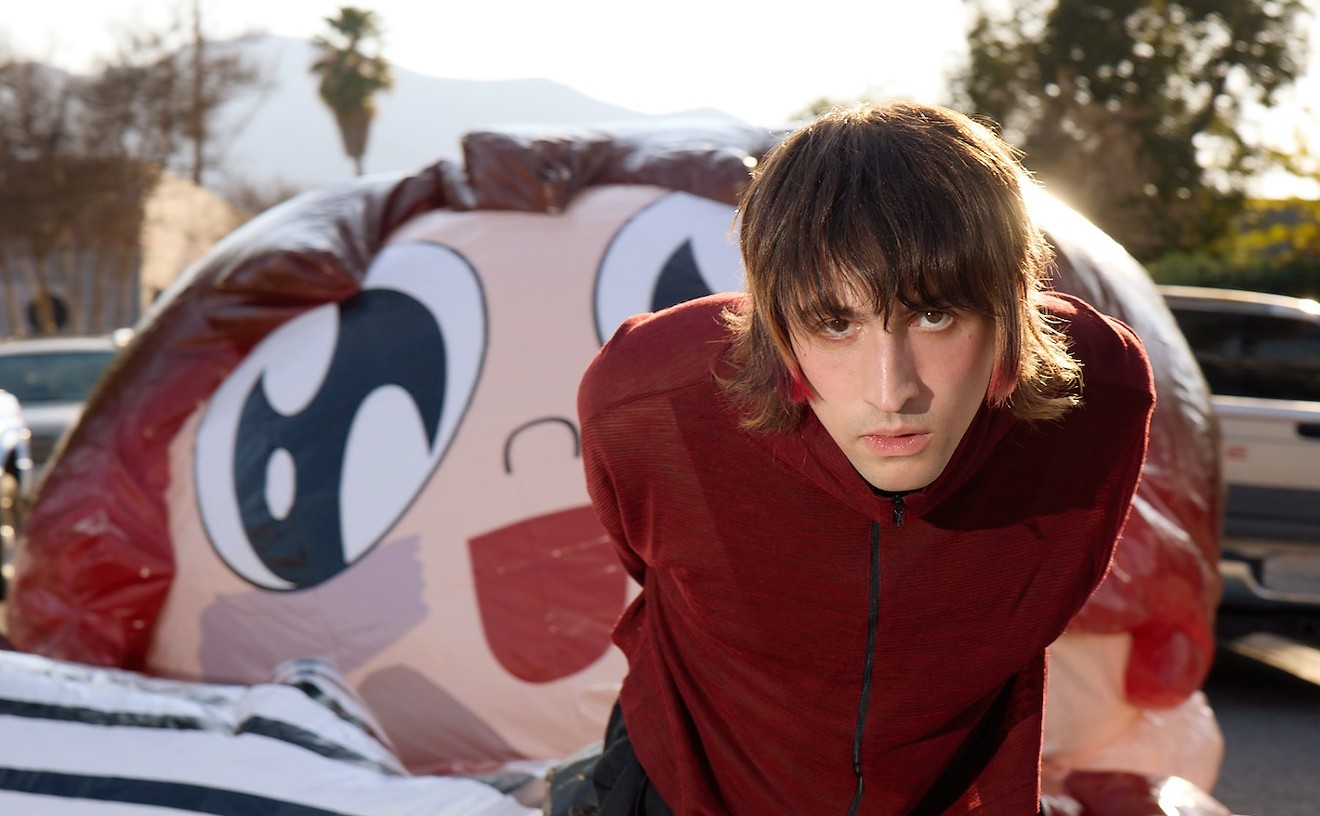By 1991 and Sebadoh III, though, we knew he was the future. My friends and I, out of college and newly lost in urban America, found our soundtrack in that record. Unable to relate to R.E.M. any more except as purveyors of happy neo-hippie music, finding ourselves drawn to "outsider" rediscoveries like Syd Barrett, we immediately latched on to Sebadoh III, which mixed those influences into gnarled, experimental song forms. Sebadoh's lyrics gave up on grand statements and focused, with irony and optimism, on an intense personal world. Barlow and bassist Jason Loewenstein, too smart to pass themselves off as either macho or sensitive guys, struggled to find love relationships that were not based on anything as simple as sex or companionship, but on something much more difficult -- namely, friendship. When this effort proved fruitless and they ended up angry and self-flagellating, their honesty as songwriters was confirmed. Dozens of lines from that record still echo in my mind: "Self-righteous but never right/So laid back but so uptight"; "Violence is cool, one of two things real"; "All the world will tell you you're all wrong/But big deal if you're wrong."
"I hope I can do another record like Sebadoh III," Barlow says now. "We weren't much of a live band at that point. We were more geared to doing these little four-track things, and that was great. I still love that process. We were listening to people like Royal Trux, who were fucking up their sound, and we wanted to do the same thing. I hadn't really heard Syd Barrett at that point. People will say, 'Oh, you sound exactly like Barrett or Nick Drake,' and I can see that I was trying to do something like them without ever having heard them.
"On the next record, I'd like to get back to fucking with our sound more. We've been trying on these last two records to get a cleaner band sound. But I would hate to look back and see us just progressing in this straight line toward a poppier sound. I love pop music, but there's time for us to explore that and give it a thicker sound and make it more experimental."
After III, Sebadoh did progress toward a more straightforward rock sound. While Nirvana was dominating, they signed with Sub Pop and made a couple of big, grungey records (Smash Your Head on the Punk Rock and Bubble & Scrape) that uneasily mixed Barlow's delicate melodic sense, Loewenstein's herky-jerky hardcore, and drummer Eric Gaffney's inaccessible, bomb-throwing mania.
If those records were a bit uneven, with the three sensibilities clashing more often than flowing together, the musicians themselves became a fascinating live band. Fighting against rock star poses and never giving audiences easy pleasure, they put on shows that attempted to reconcile their regular-guy integrity with rock and roll transcendence. Ignoring requests and not indulging in cover tunes, the band struggled to please its audiences by giving them honest feelings, not showmanship. Although they did reveal the artifice behind a rock performance, their shows seemed like wonderful failures.
Typical of this was a 1994 New York gig where Barlow saw an old friend in the audience. The guy requested Black Flag's "Rise Above." Barlow gave in and started the song. The crowd, recognizing a punk classic, went crazy. Halfway through Barlow threw up his arms and stopped, saying, "God, I feel like a loser." After a few more old Sebadoh numbers that hardly anyone in the audience knew, the band went into "License to Confuse," a popular song from their new record at the time, Bakesale. The crowd, which had come primarily, I think, to hear songs from that album, went crazy again. Barlow announced with his usual anti-fanfare, "Okay, here's your get-out-of-jail-free card."
"I think we used to be pretty paranoid on-stage that we were letting somebody down," Barlow says today. "We were more into the indie rock thing where you were doing it for a cause or something. It took us awhile to get comfortable with having a good time. I used to see all these cliches in playing live, and I spent a lot of time fighting that. We were also inexperienced and didn't have the details of playing down. That in itself can be cool, but there came a time when we wanted to step up and be a live band.
"That's also affected our more recent records," he continues. "I mean, the last two albums have been us trying to get our live sound down on tape. We've stepped up and gotten our shit together, I think. To do that, though, we've had to leave some decisions about our sound to an engineer. I'm comfortable with that up to a point. I mean, we decided that's what we wanted to do, so it was okay. Like I said, I'd also like to take our sound and play around with it again. But I'm very happy with the new record. It's pretty modest and controlled, more listenable, I think, than our other stuff.
"As far as playing live, it still depends on the hall. The larger places we play now can have sound that is just as bad as the old tiny places we used to play. I don't mind playing to larger audiences. Where it used to be we felt like we had to prove something and kind of fight the crowd, now we feed off the crowd's energy more and we've gotten comfortable in that situation. Our songs are written with more of a live show in mind, so that makes things a lot easier, when you don't have to struggle to translate stuff from the studio to the stage."
Bakesale was the band's rock and roll breakthrough. Loewenstein came up with his best batch of melodies; the band, anchored by drummer Bob Fay (who replaced Gaffney), laid down a lean groove, and the sound left lo-fi behind for sixteen-track clarity. The lyrics explored the old tensions from a more level-headed, less self-hating, point of view. Everything clicked.
The new album, Harmacy, tones down the Bakesale indie power-trio idea a bit. And because of Barlow's Top 40 success with the song "Natural One" (released as part of his side project, the duo Folk Implosion), the band has had to weather more mainstream attention, industry pressure, and sniping from their old indie fans. Both Barlow's and Loewenstein's new songs react to this, but in different ways. Barlow seems to welcome pop possibilities more, producing smoother, more conventional midtempo love songs, while Loewenstein seems to be resisting the pop call. His songs step away from their fully developed Bakesale state, reaching back for minimalist hardcore integrity.
As one of their aging indie fans, I find it hard to get worked up about this new record. Not that it's a bad album, or that success is the band's fault. But after "Natural One," Sebadoh became a marketable part of youth culture, something we're now spoon-fed rather than a voice in the wilderness. And without the snotty experimentalism of III or the rock and roll momentum of Bakesale, Harmacy strikes me as a bit too modest, a safe entry into the alternative rock universe.
"It was fun to watch 'Natural One' happen," Barlow recalls. "It wasn't something I went after or anything. I mean, the Folk Implosion was the place where I was able to experiment outside of Sebadoh. That's why I did it. So it was ironic that that would become such a big success. I went through a time after that, though, where I was scared about what might happen. It was like, 'Shit, things are going to change.' And we did get some biz pressure, which I had never experienced before. People in the industry were like, 'You should really cash in on this, you're going to let a great chance go by.' It did fuck me up for a while, but I think I've come through that tunnel.
"Coming out of the punk-rock world, I always looked at the industry part as very black and white, and major labels were just bad. But it isn't like that, necessarily. We've developed a good relationship with Sub Pop over the years. It took time, but both sides understand each other. They don't really pressure us. They know what we're comfortable with.
"But to me, the Folk Implosion and the instincts we had in making that music were the right ones. My favorite music is from the Sixties. That stuff sounds so perfect, but it was experimental. I want to keep going in that direction, and that's what the Folk Implosion was. Any success from that was out of my control."
While the new record might not be Sebadoh's best, they're still a very good live band. They do seem more comfortable up there now, and they deliver good rock and roll without the star turns. The songs fill out nicely in performance, and the band is still willing to experiment and mess with the audience's expectations. If they can't give us the old thrill of finding a private voice outside the mainstream, and if they can't create raw tension by trying to make self-criticism entertaining any more, they make up for it with some of the most committed, unpretentious, and grooving music you'll see from alternative rockers anywhere. Call it maturity or call it a sell-out, but dig it while you can.
"I really enjoy touring now," Barlow says. "We've got a bus. There are no issues of integrity about that. It just improves the quality of life and makes us play shows better, really. I play better because I don't have to spend nine hours a day staring straight ahead from the seat of a van. We've got the money to support it, so we do. And it inspires me, because when our fans see me come out of a bus, I think, 'Jesus, I'd better play a great show!'"
Sebadoh performs a free in-store show Sunday, January 26, at Blue Note Records, 16401 NE 15th Ave, North Miami Beach, at 3:00 p.m., 940-3394; regular show Monday, January 27, at Respectable Street Cafe, 518 Clematis St, West Palm Beach, 561-832-9999. Tickets cost $11. Doors open at 9:00 p.m.










